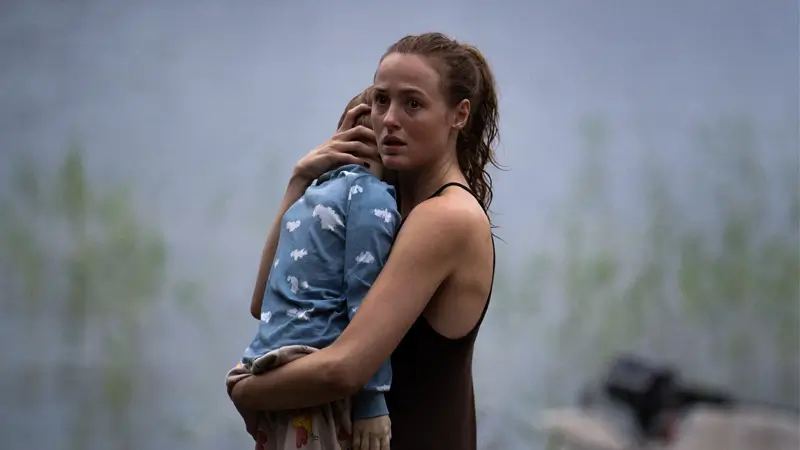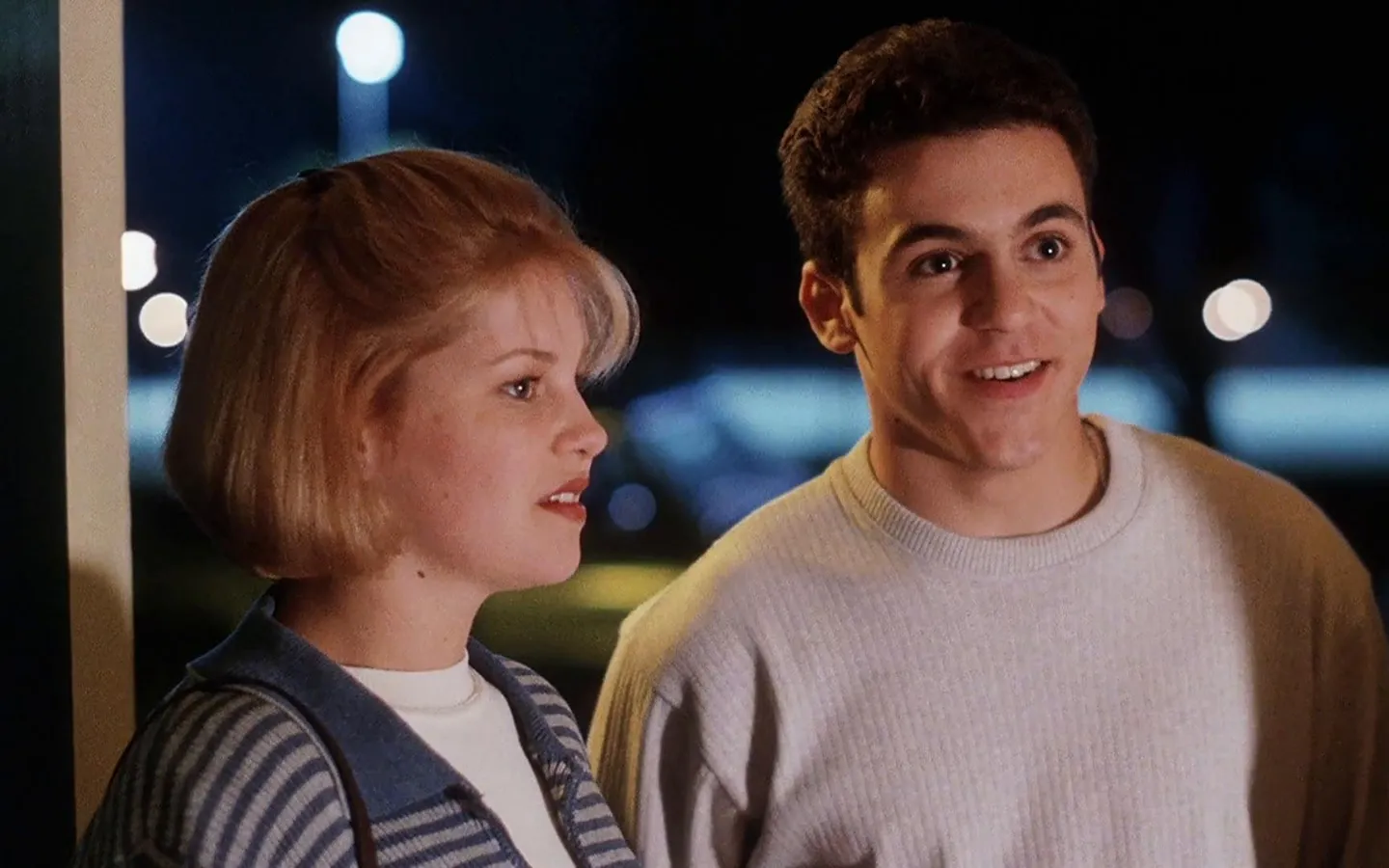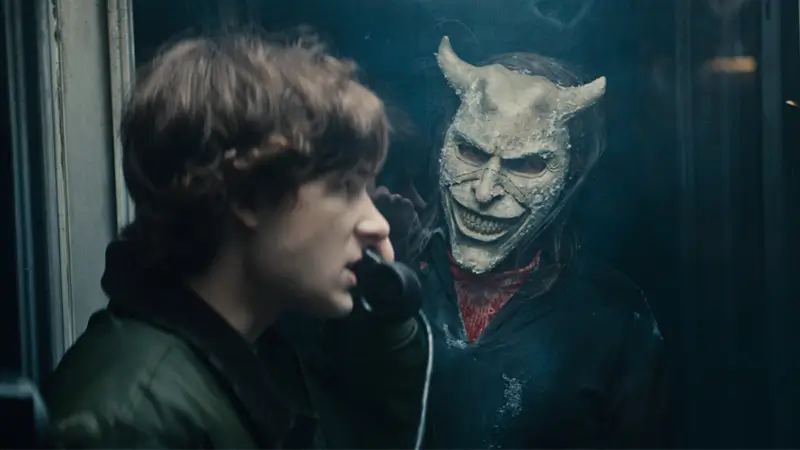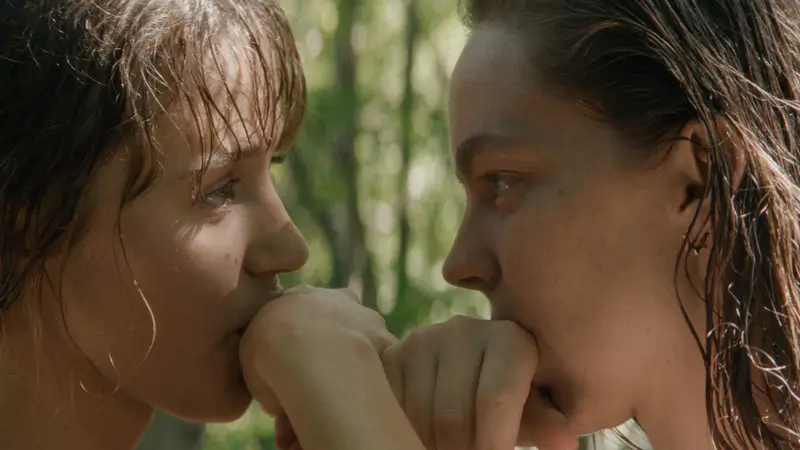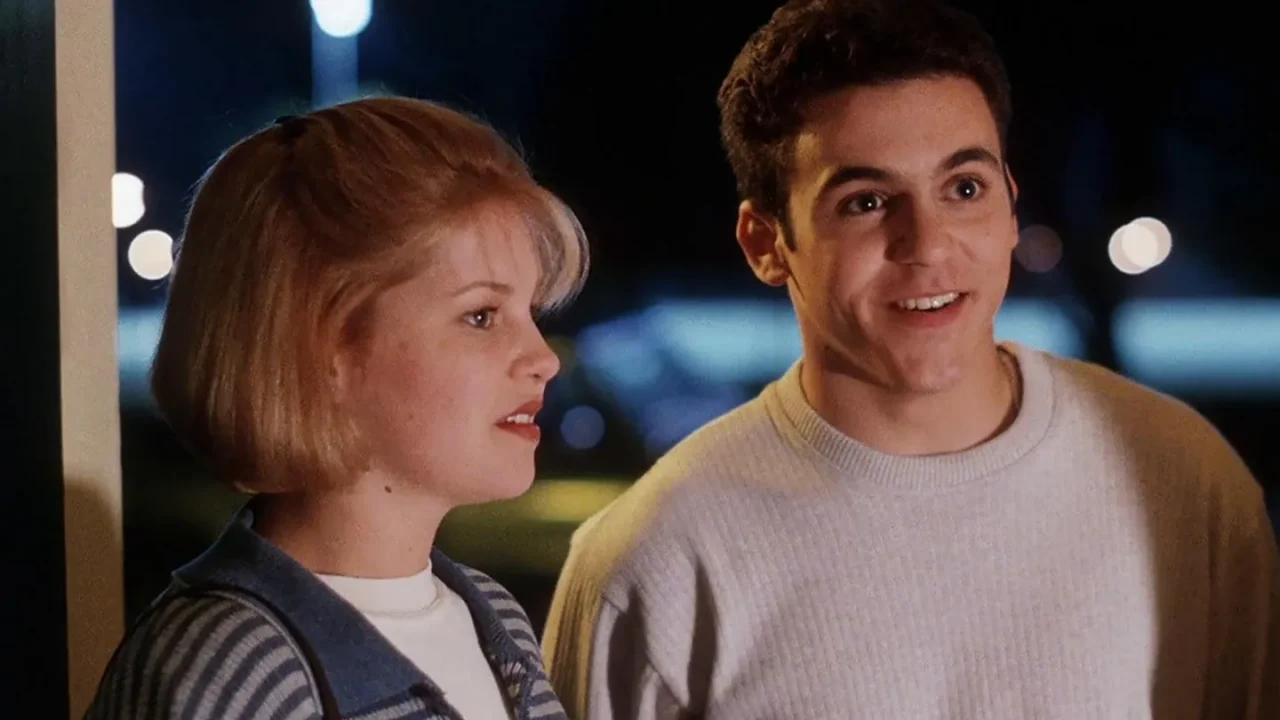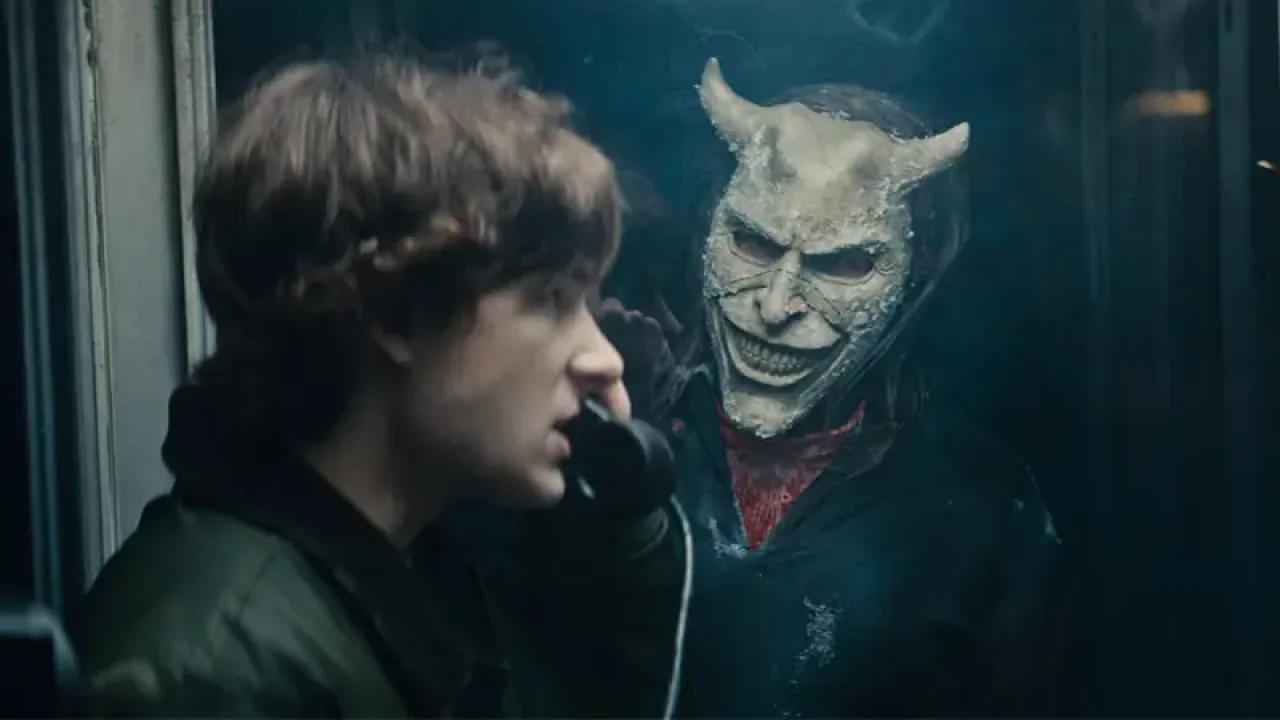Few superhero films have assembled a cast as impressive and dynamic as Captain America: Civil War. In this pivotal Avengers and Marvel Cinematic Universe chapter, the ideological rift between Chris Evans’ Captain America and Robert Downey Jr.’s Iron Man splits the Avengers, turning allies into adversaries and setting the stage for one of the franchise’s most emotionally charged confrontations.
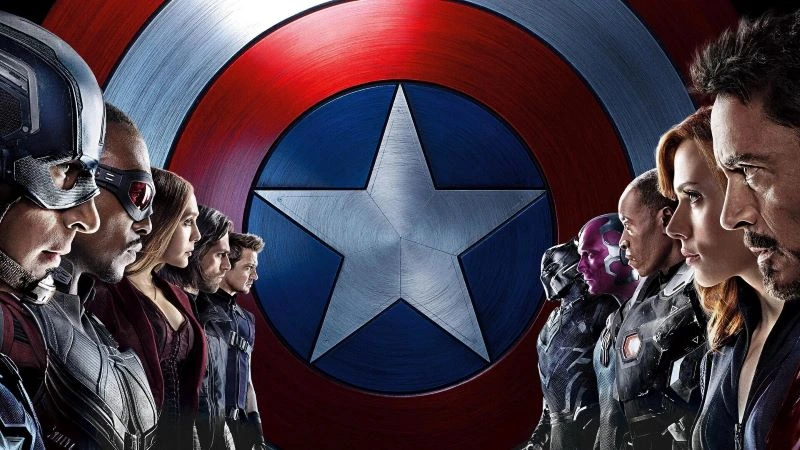
The Civil War cast ensemble features familiar faces—Scarlett Johansson as Black Widow, Jeremy Renner as Hawkeye, and Elizabeth Olsen as Scarlet Witch—each adding nuance and depth to the unfolding drama. Mark Ruffalo (Poor Things) and Chris Hemsworth’s (Thor) absence is keenly felt, while the arrival of Tom Holland’s Spider-Man and Chadwick Boseman’s Black Panther injects fresh energy and anticipation for the future of the MCU.
Paul Rudd’s Ant-Man brings comic relief and unexpected heroics, and Daniel Brühl’s Zemo stands out as a villain whose motivations are rooted in personal tragedy rather than cliché villainy.
Together, this cast not only delivers spectacular action but also grounds the story in genuine emotion, making Civil War a defining moment for Marvel’s heroes and the actors who portray them.
Captain America: Civil War
Captain America: Civil War is a pivotal entry in the Marvel Cinematic Universe, exploring the deep ideological rift that fractures the Avengers.
The story picks up after the events of Avengers: Age of Ultron, as the world grapples with the collateral damage caused by the team’s battles. Political pressure mounts, leading to the introduction of the Sokovia Accords—a system of international oversight designed to regulate superhuman activity and hold the Avengers accountable for their actions.
This new status quo divides the team into two opposing factions. Steve Rogers (Captain America) leads those who believe the Avengers should remain free from government interference, trusting their own judgment to safeguard humanity. On the other side, Tony Stark (Iron Man) supports regulation and accountability, haunted by the consequences of his past actions and the destruction in Sokovia.
The conflict escalates when a bombing at a United Nations conference—intended to ratify the Sokovia Accords—kills the King of Wakanda and frames Bucky Barnes, Captain America’s longtime friend. As Rogers defies authorities to protect Barnes, alliances shift and friendships are tested, culminating in a dramatic showdown between the two factions at an airport in Germany.
Beyond the high-stakes action, Captain America: Civil War stands out for its emotional depth and character-driven narrative. The film not only introduces new heroes like Black Panther and Spider-Man but also explores the personal costs of heroism and the consequences of divided loyalties, making it one of the most impactful stories in the MCU.
Is Civil War an Avengers movie?
While Captain America: Civil War features nearly the entire Avengers roster and delivers the scope and spectacle of an Avengers film, it is officially part of the Captain America solo trilogy, not an Avengers installment.
The story centers on Steve Rogers—his values, relationships, and personal conflicts—making him the clear protagonist. The narrative follows Cap’s journey as he grapples with the Sokovia Accords, his loyalty to Bucky Barnes, and his growing mistrust of government oversight, themes that are consistent with his previous solo films.
Despite the ensemble cast and the film’s massive impact on the MCU, the focus remains on Captain America’s perspective. The other heroes, including Iron Man, Black Widow, and newcomers like Black Panther and Spider-Man, play significant roles but ultimately serve to challenge or support Cap’s choices.
Many fans and critics refer to Civil War as “Avengers 2.5” because of its scale and cast, but it is structured around Cap’s arc rather than being a true team-up film with equal focus on all members.
Captain America: Civil War cast
Captain America: Civil War features one of the most impressive ensembles in the Marvel Cinematic Universe, bringing together established heroes, new faces, and compelling antagonists.
Chris Evans as Steve Rogers/Captain America
Chris Evans (Knives Out) delivers a defining performance as Steve Rogers, also known as Captain America, in Captain America: Civil War. In this film, Rogers emerges as the leader of a faction of Avengers who oppose government regulation, standing firmly against the Sokovia Accords—a system designed to impose oversight on superhero activities.
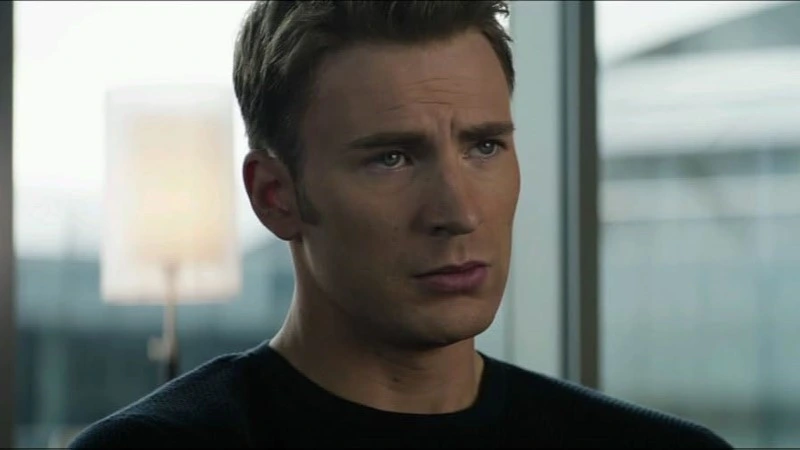
His stance is rooted in his belief in personal freedom and responsibility, reflecting his journey from a by-the-book soldier to someone willing to challenge authority for what he believes is right.
Director Anthony Russo described Rogers’ arc as a transformation from “the most ra-ra company man” to an “insurgent,” highlighting the complexity and evolution of the character. This evolution is central to the film’s conflict, as Rogers’ mistrust of imposed systems puts him at odds with Tony Stark, who supports regulation.
Evans himself has noted the relatability of this ideological clash, drawing parallels to real-world debates about freedom versus security, and emphasizing that neither side is definitively right or wrong.
Robert Downey Jr. as Tony Stark/Iron Man
Robert Downey Jr. (Oppenheimer) delivers a layered portrayal of Tony Stark/Iron Man, anchoring the ideological conflict that defines the film. As the leader of the faction advocating for the Sokovia Accords—a system of international oversight for the Avengers—Stark’s stance is driven by guilt over his role in Ultron’s creation and the devastation of Sokovia.
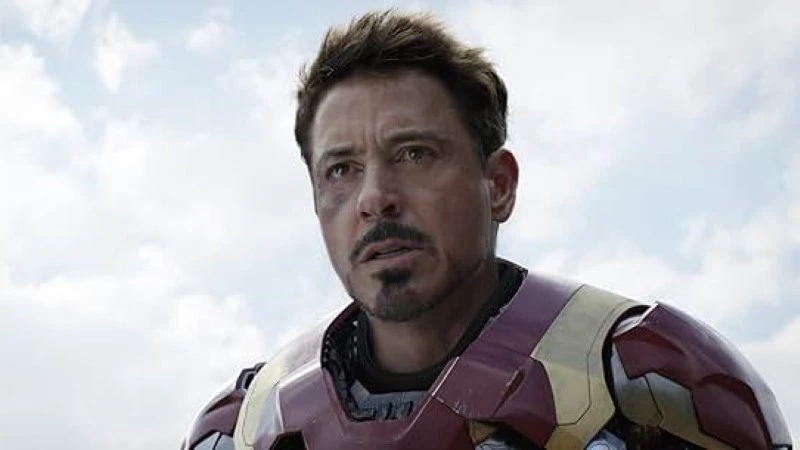
Directors Anthony and Joe Russo emphasized that Stark’s arc reflects his growing accountability, with his guilt complex and post-Age of Ultron visions shaping his belief in regulation.
Downey’s performance captures Stark’s internal conflict, balancing his trademark wit with moments of vulnerability, particularly in scenes where he confronts the consequences of his past actions.
His emotional journey peaks during the film’s climax, where he discovers the truth about Bucky Barnes’ role in his parents’ death, leading to a visceral, rage-fueled confrontation with Captain America and the Winter Soldier.
The Russos noted that Stark’s willingness to submit to authority marks a significant evolution from his earlier egocentric persona, underscoring his desire to atone for past mistakes.
Scarlett Johansson as Natasha Romanoff/Black Widow
Scarlett Johansson’s (Her) portrayal of Natasha Romanoff, also known as Black Widow, marks a pivotal moment for the character within the Marvel Cinematic Universe. By the time of this film, Black Widow is a seasoned Avenger and expert strategist, but she finds herself navigating a complex moral landscape as the team fractures over the Sokovia Accords.
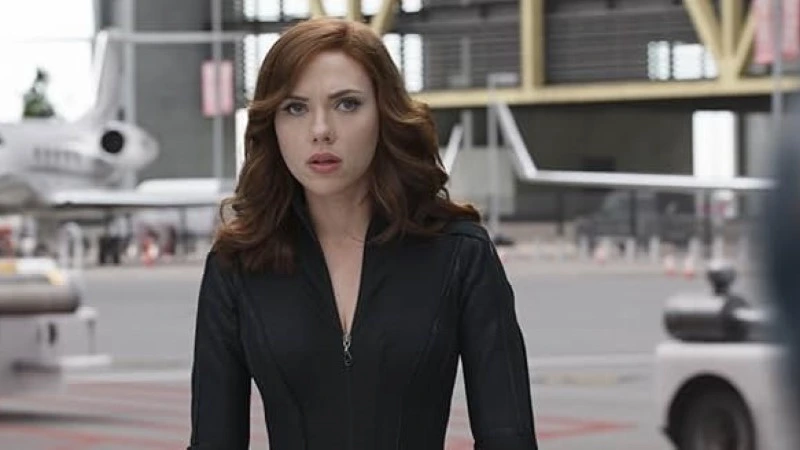
Notably, Natasha initially sides with Tony Stark and supports government oversight of superheroes—putting her at odds with her longtime friend Steve Rogers—yet her true loyalty remains nuanced and deeply personal.
Johansson has described this period as a turning point for Natasha, highlighting how, for the first time, the character is able to make choices for herself rather than simply reacting to circumstances. She is no longer just following orders or the trajectory set by her past, but actively defining her own path and values.
This internal struggle is mirrored by her external actions, as she attempts to mediate between the two opposing factions, always keeping a broader perspective and seeking what she believes is best for the greater good.
Sebastian Stan as Bucky Barnes/Winter Soldier
Sebastian Stan (A Different Man) delivers a nuanced and emotionally charged performance as Bucky Barnes, also known as the Winter Soldier, in Captain America: Civil War. Bucky’s journey in this film is central to the plot, as he is framed for a bombing in Vienna that kills King T’Chaka of Wakanda, setting off a chain of events that deepens the rift between the Avengers.
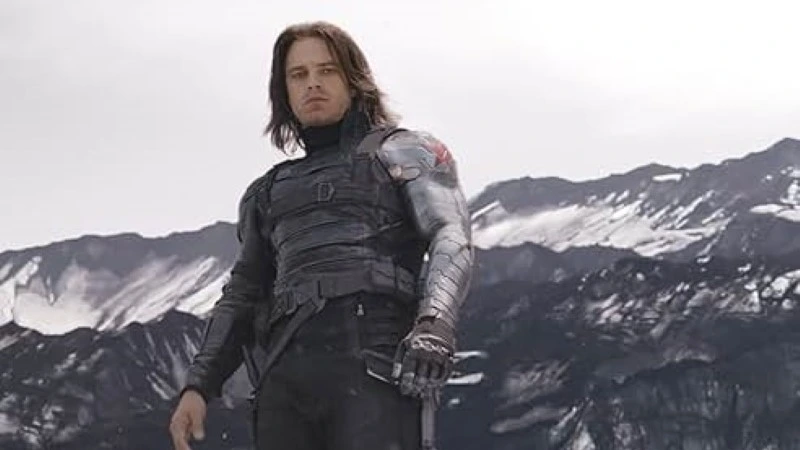
Still haunted by his past as a brainwashed Hydra assassin, Bucky struggles to reclaim his identity and prove his innocence, while his deep bond with Steve Rogers remains a driving force in his quest for redemption.
Stan’s portrayal highlights Bucky’s internal conflict—caught between his past actions as the Winter Soldier and his desire to be free from Hydra’s control. The film explores the trauma and guilt that linger from decades of forced violence, as well as Bucky’s vulnerability when he is again subjected to brainwashing by Zemo, the movie’s antagonist.
This complexity makes Bucky one of the MCU’s most compelling anti-heroes, with Stan bringing both physical intensity and emotional depth to the role.
Anthony Mackie as Sam Wilson/Falcon
Anthony Mackie (8 Mile) brings charisma and depth to Sam Wilson, also known as Falcon. As a loyal ally to Steve Rogers, Sam stands firmly by Captain America’s side during the Avengers’ ideological split, driven by his unwavering sense of loyalty and justice.
Falcon’s advanced flight suit and combat expertise make him an essential asset in the film’s action sequences, especially during the memorable airport battle where his aerial maneuvers and tactical skills shine.
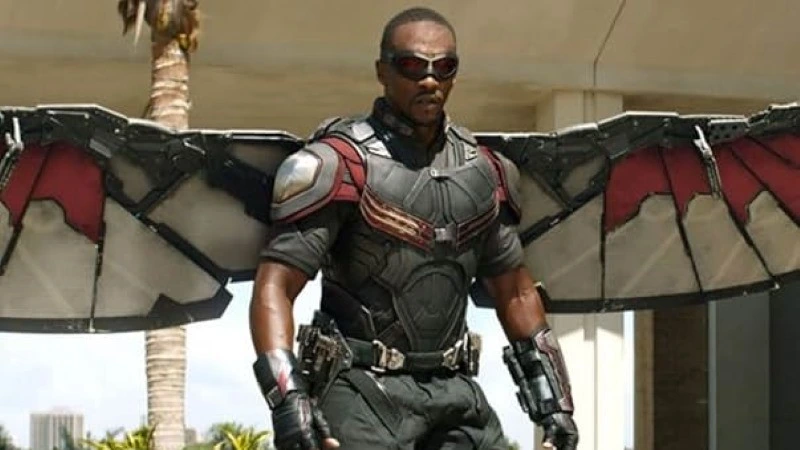
Mackie’s portrayal of Sam Wilson emphasizes the character’s integrity and steadfastness. Rather than being a mere sidekick, Falcon emerges as a trusted confidant and strategist, often providing level-headed counsel to Rogers as the conflict escalates.
Mackie has spoken about the importance of representation in superhero films, noting that Falcon’s presence brings diversity to the Avengers and offers inspiration to young fans.
Don Cheadle as James “Rhodey” Rhodes/War Machine
Don Cheadle (Ocean’s Thirteen) returns as Colonel James “Rhodey” Rhodes, also known as War Machine, delivering a performance that highlights both his loyalty and vulnerability.
As Tony Stark’s closest friend and a decorated U.S. Air Force officer, Rhodey firmly supports the Sokovia Accords and stands with Iron Man’s faction, believing in the need for oversight and accountability among superheroes.
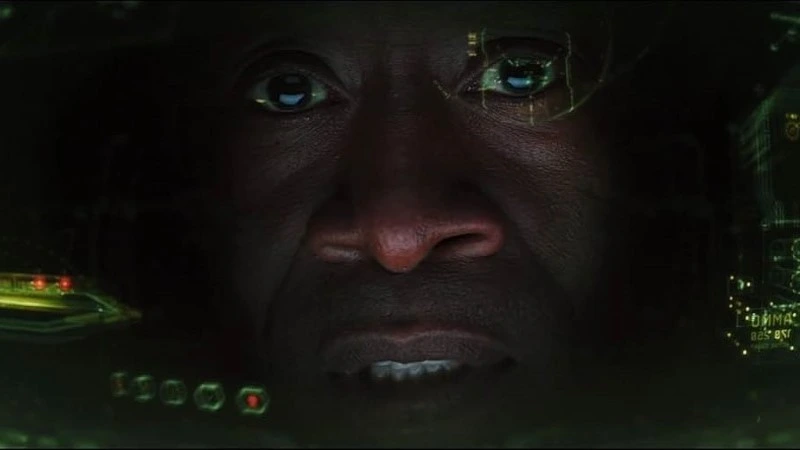
Cheadle’s portrayal is especially impactful during the film’s central conflict, where War Machine’s dedication is put to the test. In the climactic airport battle, Rhodey is gravely injured when Vision accidentally strikes him, causing him to crash and leaving him temporarily paralyzed from the waist down.
This moment adds emotional weight to the story, raising the stakes for all the Avengers and underscoring the real consequences of their ideological divide.
Jeremy Renner as Clint Barton/Hawkeye
Jeremy Renner (Arrival) returns as Clint Barton, also known as Hawkeye, bringing his signature mix of dry wit, loyalty, and sharpshooting expertise to the ensemble.
Despite having retired to focus on his family, Barton is drawn back into action by Steve Rogers, demonstrating his deep sense of duty and personal loyalty to his friends. Hawkeye’s decision to side with Captain America is rooted in his belief in individual freedom and his debt to Wanda Maximoff (Scarlet Witch), whose brother Pietro sacrificed himself to save Barton in a previous battle.
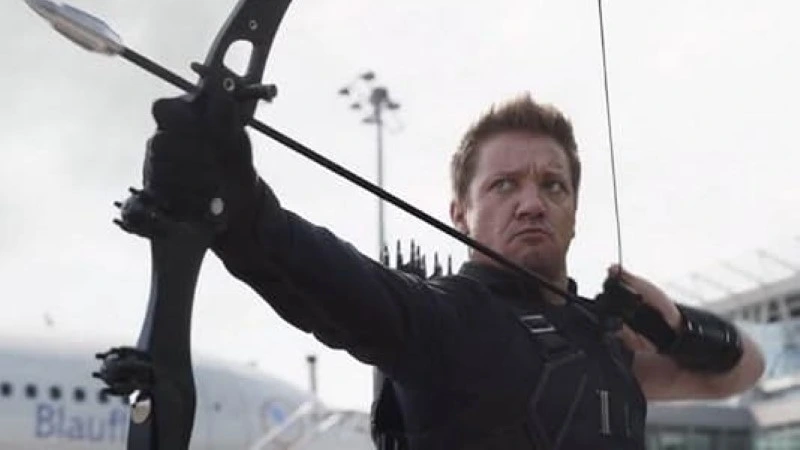
Throughout the film, Hawkeye serves as both a skilled combatant and a moral anchor for the team. His return is marked by memorable action sequences, including the dramatic breakout of Scarlet Witch from Avengers headquarters and his participation in the iconic airport battle, where his resourcefulness and precision with a bow stand out.
Renner’s portrayal highlights Barton’s everyman qualities—he’s a hero without superpowers, relying on training, experience, and a strong moral compass to navigate the escalating conflict.
Chadwick Boseman as T’Challa/Black Panther
Chadwick Boseman (Ma Rainey’s Black Bottom) made a powerful debut as T’Challa, also known as Black Panther, marking a pivotal moment for both the Marvel Cinematic Universe and superhero cinema as a whole.
In the film, T’Challa is introduced as the prince of Wakanda, drawn into the Avengers’ conflict after the tragic death of his father during a bombing at the United Nations. Driven by a quest for justice, T’Challa’s motivations are initially personal, as he seeks to avenge his father, but his journey quickly evolves into one of leadership and moral complexity.
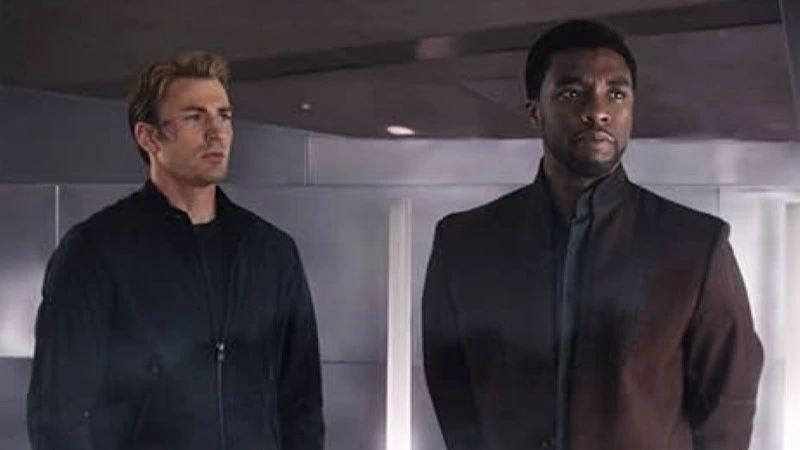
Boseman’s portrayal is marked by a quiet intensity and regal presence, capturing T’Challa’s sense of duty and the weight of his responsibilities. The character’s allegiance remains deliberately ambiguous throughout the film, as he navigates the ideological divide between Captain America and Iron Man.
Boseman himself described Black Panther as a “mysterious” figure, someone whose agenda is distinct from the other heroes and who brings a fresh perspective to the conflict. This neutrality and depth add intrigue, making T’Challa a standout even among an ensemble cast.
To authentically embody the role, Boseman immersed himself in African culture, learned Xhosa for the character’s dialogue, and insisted on using the accent throughout filming, both on and off camera. His commitment to the role extended beyond performance, influencing the character’s authenticity and cultural resonance.
Critics and audiences alike praised Boseman’s performance, noting that his introduction as Black Panther not only set the stage for his own groundbreaking solo film but also elevated the significance of representation in blockbuster cinema.
Tom Holland as Peter Parker/Spider-Man
Tom Holland’s (Uncharted) debut as Peter Parker/Spider-Man in marked a major milestone for the Marvel Cinematic Universe, introducing a youthful and energetic take on the iconic hero.
At just 19 years old, Holland brought a genuine teenage spirit to the role, distinguishing his portrayal from previous versions and staying true to the character’s comic book roots. His Spider-Man is witty, self-conscious, and full of awe—qualities that shine in both his banter with fellow heroes and his wide-eyed reactions during battle, such as his memorable line to the Winter Soldier: “You have a metal arm! That’s so cool!”
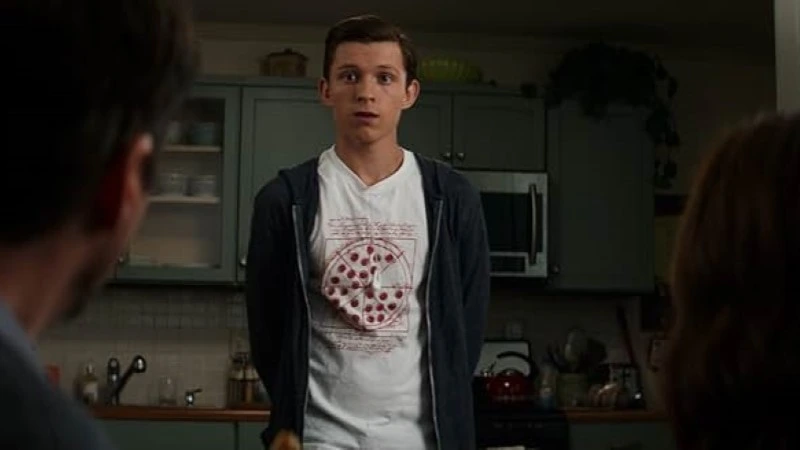
Spider-Man’s entrance into the MCU was made possible by a unique agreement between Marvel Studios and Sony Pictures, allowing the character to join the Avengers on screen for the first time. Holland was cast after an intense audition process, and remarkably, he was shooting his first scenes just four days after landing the role.
His chemistry with Robert Downey Jr.’s Tony Stark is immediately apparent, as Stark recruits the young hero to join Team Iron Man, setting up a mentor-mentee dynamic that would become central in future films.
Paul Bettany as Vision
Paul Bettany’s (The Da Vinci Code) portrayal of Vision deepens the character’s exploration of humanity, logic, and emotion. As a synthetic being powered by the Mind Stone, Vision approaches the Avengers’ conflict with a logical mindset, believing that surrendering for the collective good is the rational path, as highlighted in his direct appeal to Captain America.
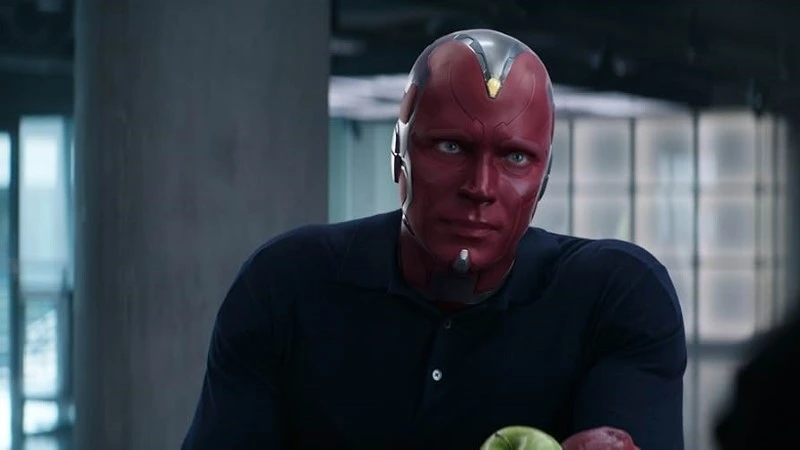
However, Bettany notes that Vision is still “omnipotent and yet totally naive at the same time,” experiencing the world and his place in it in real time, which makes his journey unpredictable and compelling.
A significant aspect of Vision’s arc in Civil War is his evolving relationship with Wanda Maximoff. Bettany has explained that both characters are grappling with immense, poorly understood powers, and Vision feels a strong connection to Wanda out of both empathy and concern for their potential danger.
This budding connection leads Vision to attempt acts of care—such as cooking for Wanda, despite not needing to eat—showcasing his effort to understand human emotions and relationships.
Elizabeth Olsen as Wanda Maximoff/Scarlet Witch
Elizabeth Olsen (Wind River) returns as Wanda Maximoff, also known as Scarlet Witch, delivering a performance that highlights both the character’s growing power and her internal struggles.
In this film, Wanda’s telekinetic and energy manipulation abilities—amplified by the Mind Stone—have advanced significantly, making her one of the most formidable members of the Avengers.
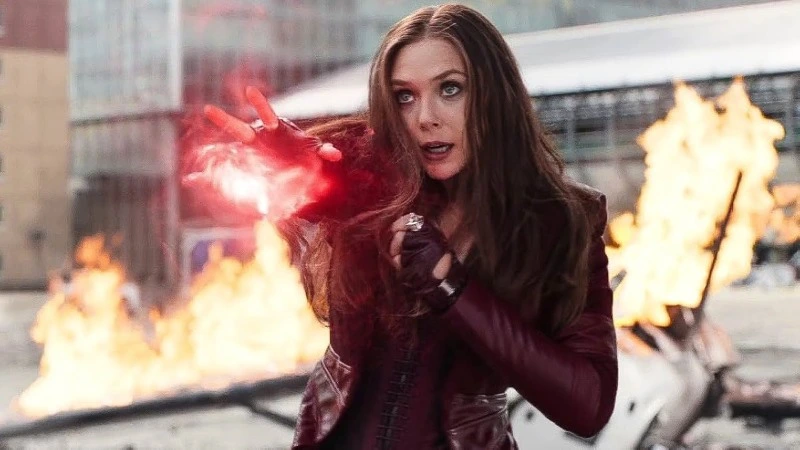
However, her powers also become a source of fear and controversy after a mission in Lagos leads to unintended civilian casualties, placing her at the heart of the debate over superhero accountability.
Olsen’s portrayal captures Wanda’s vulnerability as she grapples with guilt and the burden of her abilities. Throughout the movie, Wanda finds herself torn between her loyalty to Captain America and the restrictions imposed by the Sokovia Accords, which seek to control enhanced individuals like herself.
Her relationship with Vision deepens, adding emotional complexity to her character as she navigates trust, control, and the search for belonging among the Avengers.
Paul Rudd as Scott Lang/Ant-Man
Paul Rudd (The Perks of Being a Wallflower) brings humor and heart to the role of Scott Lang, also known as Ant-Man, in Captain America: Civil War. Recruited by Sam Wilson to join Captain America’s faction, Scott finds himself thrust into the Avengers’ ideological conflict, fighting alongside heroes he once admired from afar.
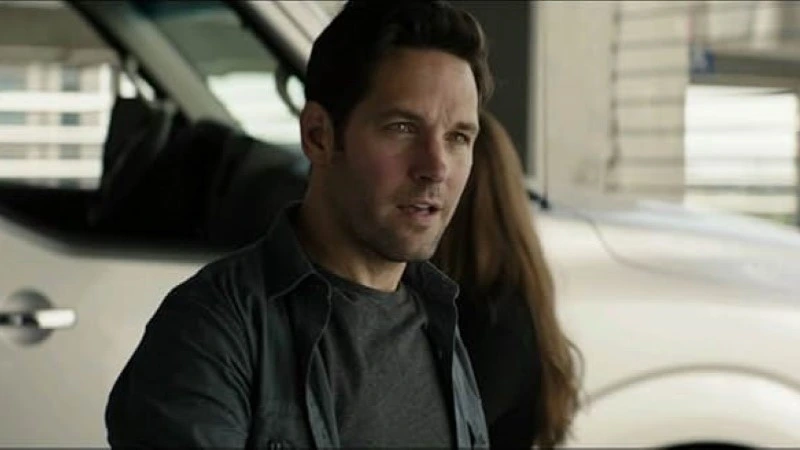
Rudd has described the experience as “surreal,” sharing that he felt like a kid on set surrounded by icons like Chris Evans and Robert Downey Jr., and that joining the ensemble cast was both exciting and intimidating.
In the film, Ant-Man’s abilities take center stage during the airport battle, where he not only shrinks to infiltrate Iron Man’s suit but also surprises everyone by transforming into Giant-Man, growing to an enormous size and turning the tide of the fight. This moment, both comedic and heroic, quickly became a fan favorite and showcased the evolution of Scott Lang’s powers since his solo debut.
Rudd’s comedic timing is also on display, with memorable lines and quirky moments—such as his request for orange slices after exhausting his energy as Giant-Man, a detail that became a playful inside joke among fans.
Daniel Brühl as Helmut Zemo
Daniel Brühl’s (Rush) performance as Helmut Zemo stands out as one of the most nuanced and psychologically complex villain portrayals in the Marvel Cinematic Universe.
Zemo is introduced as a former Sokovian special forces operative whose family was killed during the events of Avengers: Age of Ultron. This personal tragedy drives his quest for revenge—not through brute force, but through calculated manipulation, seeking to dismantle the Avengers from within by turning them against each other.
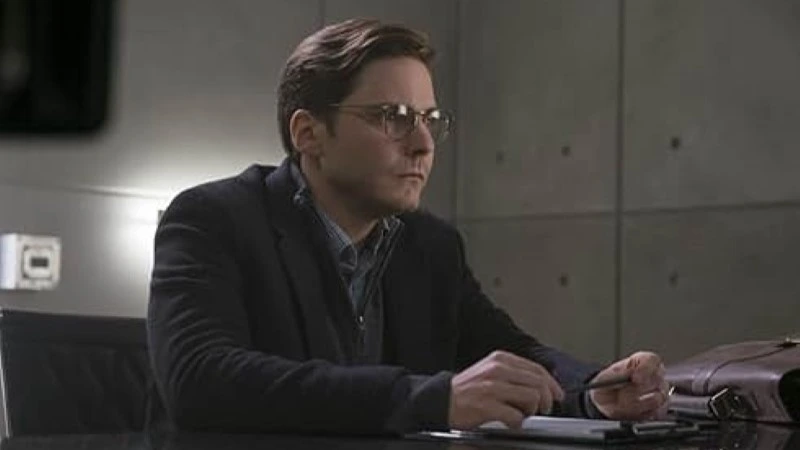
Unlike typical MCU antagonists, Brühl’s Zemo is motivated by grief and a desire for justice, making his actions both chilling and deeply human. His methodical approach and emotional restraint set him apart, as he orchestrates events that lead to the ideological and personal rift between Iron Man and Captain America.
Brühl’s understated yet intense performance brings a sense of realism and gravity to the film’s central conflict, earning Zemo recognition as one of the most complicated villains in the franchise.
Supporting roles
Beyond its headline heroes, Captain America: Civil War features a robust ensemble of supporting characters who add depth and intrigue to the story.
Emily VanCamp reprises her role as Sharon Carter (Agent 13), a skilled S.H.I.E.L.D. agent and ally to Steve Rogers, whose loyalty and resourcefulness prove crucial during key moments of the film.
Frank Grillo returns as Brock Rumlow/Crossbones, serving as a formidable antagonist in the opening sequence and setting the stage for the film’s central conflict.
William Hurt (Black Widow) makes a significant impact as Secretary of State Thaddeus Ross, the government official pushing for the Sokovia Accords and acting as a catalyst for the Avengers’ division.
Martin Freeman (The Hobbit) debuts as Everett K. Ross, a government operative whose involvement with T’Challa and international affairs hints at future MCU developments.
Marisa Tomei (The Wrestler) appears as May Parker, bringing warmth and humor in her scenes with Tom Holland’s Peter Parker.
The film also introduces John Kani as King T’Chaka, whose tragic fate propels his son T’Challa into action as Black Panther.
John Slattery (Spotlight) and Hope Davis appear in flashbacks as Howard and Maria Stark, deepening Tony Stark’s personal motivations.
Alfre Woodard’s brief but pivotal role as Miriam, a grieving mother, humanizes the collateral damage caused by the Avengers’ battles and influences Tony Stark’s stance on accountability.
Other notable supporting roles include Florence Kasumba as the Wakandan Security Chief, Gene Farber as Karpov, and cameo appearances such as Stan Lee’s memorable turn as a FedEx delivery man.
Who was on each team in Captain America: Civil War?
The core of Captain America: Civil War is the dramatic split between two factions of heroes, each led by an Avenger with a distinct ideology regarding government oversight. Here’s how the teams were divided during the film’s iconic showdown:
Team Captain America
Team Captain America was composed of Steve Rogers and his closest allies, including Bucky Barnes (Winter Soldier), Sam Wilson (Falcon), Clint Barton (Hawkeye), Wanda Maximoff (Scarlet Witch), and Scott Lang (Ant-Man). These heroes opposed the Sokovia Accords, believing the Avengers should remain independent and free from government control.
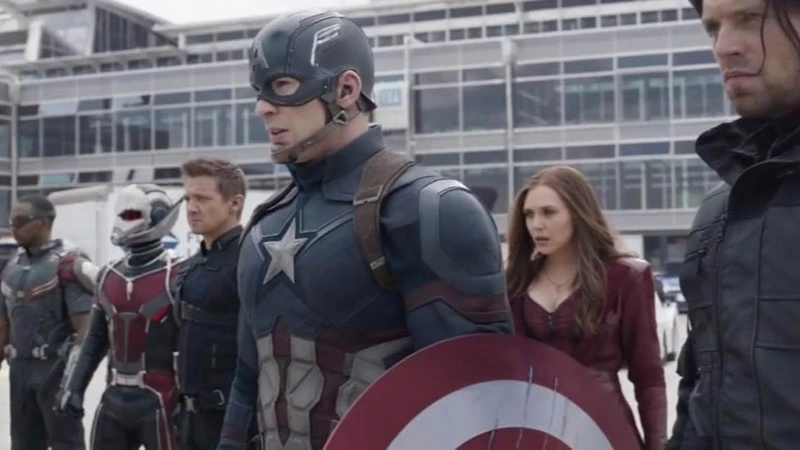
Team Iron Man
Team Iron Man was led by Tony Stark, who was joined by Natasha Romanoff (Black Widow), James Rhodes (War Machine), T’Challa (Black Panther), Vision, and Peter Parker (Spider-Man). This group supported government oversight and accountability for super-powered individuals.
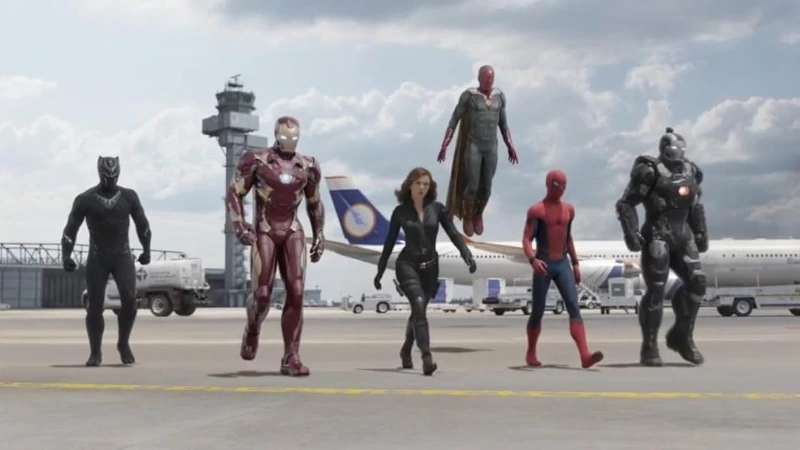
Why was Thor not in Captain America: Civil War?
Thor’s absence from Captain America: Civil War was both a narrative and practical decision within the Marvel Cinematic Universe.
In the story, Thor is not on Earth during the events of the film because, following the conclusion of Avengers: Age of Ultron, he returns to Asgard to investigate the mysterious appearance of the Infinity Stones and to seek out the force manipulating events behind the scenes—later revealed to be Thanos. This quest keeps him occupied across the cosmos and away from the conflict brewing among the Avengers on Earth.
From a filmmaking perspective, including Thor (as well as Hulk) would have dramatically shifted the balance of power between the two teams, given their immense strength and abilities. Their absence allowed the ideological and personal stakes of the conflict to remain the focus, rather than turning the showdown into an overwhelming display of force.
Why wasn’t Gwyneth Paltrow in Captain America: Civil War?
Gwyneth Paltrow (Shakespeare in Love) did not appear as Pepper Potts in Captain America: Civil War for both narrative and practical reasons.
Despite early rumors and speculation that she might participate in reshoots, Paltrow was never approached to return for the film, and she did not take part in the production. At the time, Paltrow was taking an extended break from acting to focus on her lifestyle brand, Goop, and other business ventures, which further contributed to her absence.
From a storytelling perspective, the filmmakers chose to write Pepper Potts out of the movie to serve Tony Stark’s character arc. In the film, it is revealed that Tony and Pepper are on a break, with their off-screen breakup leaving Stark emotionally vulnerable.
According to co-director Joe Russo and screenwriter Stephen McFeely, Pepper’s absence was necessary to allow Tony to take a darker, more independent path—one that would not have been possible if she were present to ground him or pull him back from the edge. This emotional distance helps explain Tony’s decisions and intensifies his motivations throughout the film.
Importance of the cast to the success of Captain America: Civil War
The ensemble cast of Captain America: Civil War was instrumental in the film’s critical and commercial success, elevating it beyond a typical superhero spectacle into a nuanced, character-driven drama.
At the heart of the film are Chris Evans and Robert Downey Jr., whose powerful performances anchor the ideological conflict and emotional stakes. Their portrayals bring depth to the central debate over freedom versus security, making the clash feel personal and consequential.
Supporting actors such as Scarlett Johansson, Sebastian Stan, Anthony Mackie, Don Cheadle, and Jeremy Renner add layers to the narrative through their distinct relationships and loyalties, reflecting the complexity of friendships tested by ideological divides.
The introduction of Chadwick Boseman and Tom Holland not only injected fresh energy and perspectives but also set the stage for future MCU storylines, with both newcomers earning acclaim for their standout performances.
The cast’s chemistry and commitment to their roles are evident in every scene, from intense confrontations to quieter moments of doubt and reflection. This dynamic interplay allows the film to explore themes of loyalty, guilt, growth, and moral ambiguity, resonating with audiences and critics alike.
Conclusion
Captain America: Civil War stands as a landmark in superhero cinema, not only for its thrilling action and high-stakes ideological conflict but also for the depth and complexity brought by its outstanding cast.
The film’s ensemble—anchored by Chris Evans’ principled Captain America and Robert Downey Jr.’s conflicted Iron Man—transforms what could have been a simple clash of heroes into a nuanced exploration of loyalty, responsibility, and the personal cost of heroism.
Supporting performances by Scarlett Johansson, Jeremy Renner, Elizabeth Olsen, Sebastian Stan, and Anthony Mackie, among others, ensure that every character’s perspective is felt, making the Avengers’ rift both believable and emotionally resonant.
The introduction of Chadwick Boseman’s Black Panther and Tom Holland’s Spider-Man injects new vitality and sets the stage for future Marvel stories, while Paul Rudd’s Ant-Man and Daniel Brühl’s Zemo add humor and gravitas, respectively.
The film’s success is rooted in its ability to balance spectacle with character-driven storytelling, delivering a narrative that reshapes the Marvel Cinematic Universe and leaves a lasting impact on its heroes and fans alike.
If you want to dive deeper into the world of Captain America: Civil War, explore cast details, or discover where to watch this pivotal Marvel film, visit Filmelier for comprehensive guides and recommendations.



